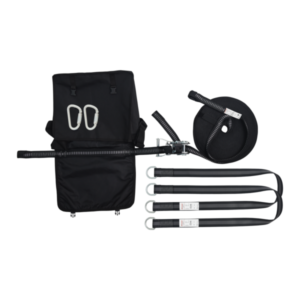
Data analysis has become an indispensable part of decision-making in today’s data-driven world. As organizations gather vast amounts of data, the role of a data analyst has emerged as crucial in extracting meaningful insights. If you aspire to be a data analyst, this blog post will guide you through the main points of work experience in this field, providing you with valuable insights into the profession.
Understanding the Data Analyst Role
Data analysts play a pivotal role in extracting valuable insights from raw data. Their responsibilities include collecting, cleaning, and organizing data, as well as applying statistical analysis and data visualization techniques to uncover patterns and trends. To succeed as a data analyst, one must possess a strong analytical mindset, attention to detail, and the ability to think critically. Familiarity with tools and software commonly used in data analysis, such as Python, R, and SQL, is also essential.
Getting Started: Entry-Level Data Analyst Positions
Starting a career in data analysis can be challenging, but there are opportunities available for entry-level positions. Begin by searching for these positions in job boards, company websites, and professional networks. Craft an effective resume and cover letter that highlight your relevant skills, education, and any data analysis projects or internships you have completed. Additionally, focus on building a strong foundation in data analysis through online courses, workshops, and self-study. Continuous learning and professional development are key to staying competitive in this field.
On the Job: Daily Activities of a Data Analyst
Once you land a data analyst position, your daily activities will revolve around collecting, cleaning, and organizing data. This involves understanding data sources, ensuring data accuracy, and preparing datasets for analysis. Exploratory data analysis techniques, such as data profiling and data visualization, will help you gain initial insights. Applying statistical analysis methods, such as regression or hypothesis testing, will enable you to uncover patterns, correlations, and relationships within the data. Finally, effectively communicating your findings through data visualizations, reports, and presentations is crucial to convey insights to stakeholders.
Challenges and Problem-Solving in Data Analysis
Data analysis is not without its challenges. Dealing with incomplete or messy data is a common hurdle that requires creativity and problem-solving skills. Data analysts often encounter technical issues that require troubleshooting, such as resolving software or hardware-related problems. Additionally, adapting to unexpected challenges and changing requirements is essential, as projects and priorities may shift. Collaboration with cross-functional teams is crucial to tackle complex problems collectively and ensure the accuracy and relevance of the analysis.
Developing Advanced Analytical Skills
To advance in your data analyst career, it is important to develop advanced analytical skills. Understanding predictive modeling and machine learning techniques will enable you to build models that make future predictions based on historical data. Programming languages like Python, R, and SQL will empower you to handle large datasets, perform complex analyses, and automate repetitive tasks. Exploring data mining and text analysis techniques will uncover hidden patterns and sentiments in unstructured data. Experimentation and A/B testing will help you make data-driven decisions and validate hypotheses.
Effective Communication of Insights
One of the most critical aspects of a data analyst’s role is effectively communicating insights to stakeholders. Creating clear and concise reports and presentations is essential, ensuring that the findings are understandable to both technical and non-technical audiences. Storytelling with data is a powerful technique that helps engage and captivate the audience. By using data visualization tools, such as Tableau or Power BI, you can create compelling visual representations of data. Tailoring your communication to different stakeholders, such as executives, marketers, or developers, is vital to convey insights in a way that is meaningful to their specific roles.
Navigating a Successful Data Analyst Career
As you gain experience in data analysis, various opportunities for specialization may arise. You can focus on specific domains such as finance, healthcare, or marketing, enabling you to develop deep industry expertise. Networking and building professional connections within the data analytics community will provide valuable insights, job opportunities, and mentorship. Additionally, continuous learning, attending industry conferences, and staying updated with the latest tools and techniques will ensure your career advancement and growth prospects.
Takeaway
Becoming a data analyst is an exciting and rewarding career choice in today’s data-driven world. By understanding the role, gaining work experience, and continually developing your skills, you can navigate a successful career in data analysis. Remember to embrace challenges, think critically, and communicate your insights effectively to drive data-informed decisions. So, embark on this journey with determination, and let your passion for data analysis propel you toward a fulfilling career filled with valuable insights and exciting opportunities.



